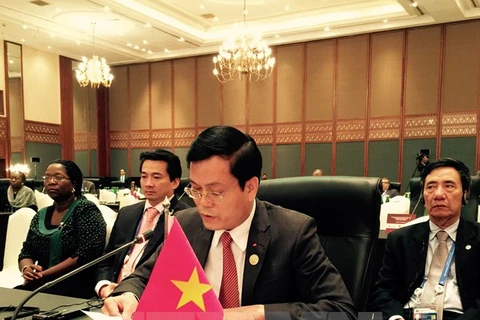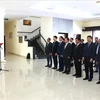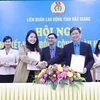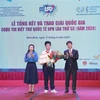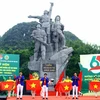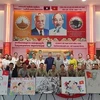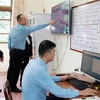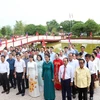New York (VNA) – Deputy Prime Minister Pham Binh Minh has affirmed the country’s all-out effort to ensure people’s right to development while addressing the high-level meeting of the United Nations General Assembly to mark the 30th Anniversary of the Declaration on the right to development.
The anniversary took place on the sidelines of the UN General Assembly’s ongoing 71st session in New York, the US, on September 22.
The Deputy PM, who is also Foreign Minister, stated that since its inception, the Declaration on the Right to Development has been the inspiration for many important international development frameworks, particularly the historic 2030 Agenda, Addis Ababa Action Agenda and Paris Agreement that was adopted in 2015.
He affirmed the relevancy of the principles in the Declaration today, highlighting the right to development as an inalienable human right that is applicable to all people and is not bracketed to any group of countries.
“Everyone, regardless of race, gender, age, religion and ethnicity, is entitled to participate in development and enjoy the fruits of development. In a broader perspective, every country, big or small, is entitled to choose its own way of development and its means to ensure the right to development for its people,” he noted.
He went on: “This noble principle also implies the importance of upholding international laws and ending imposition and power politics that only obstruct development and the right to development.”
“As development is a comprehensive process, the right to development should be approached in a holistic and multi-dimensional manner,” he said, noting that the right to development is inseparable from other rights, including the right to live in an environment of peace, security and prosperity where no one is left behind.
“As a developing country, Vietnam has made all-out efforts to ensure the right to development for every Vietnamese. Always placing people at the center of development, we have, indeed, mainstreamed the right to development in our various policies, including in all three dimensions of sustainable development - social, economic and environmental policies. We have also worked tirelessly to create an enabling environment for the most vulnerable groups and ensure equal development opportunities for all people in our country,” he told participants.
He stated that the country is fully committed to the 2030 Agenda and other development frameworks and willing to work with other Member States to make the United Nations development system “fit for purpose” so that all people in this planet can enjoy their unequivocal right to development.-VNA


